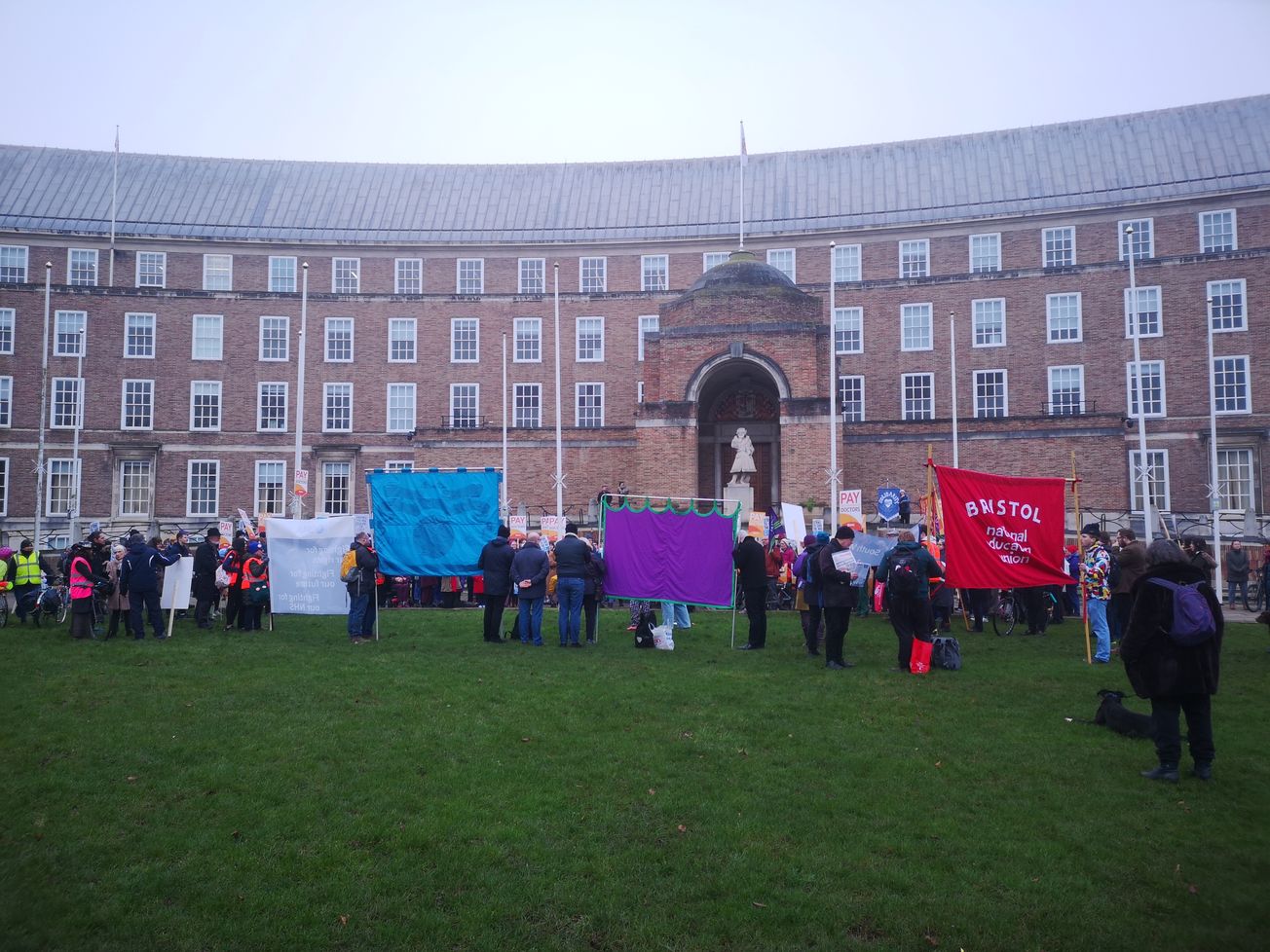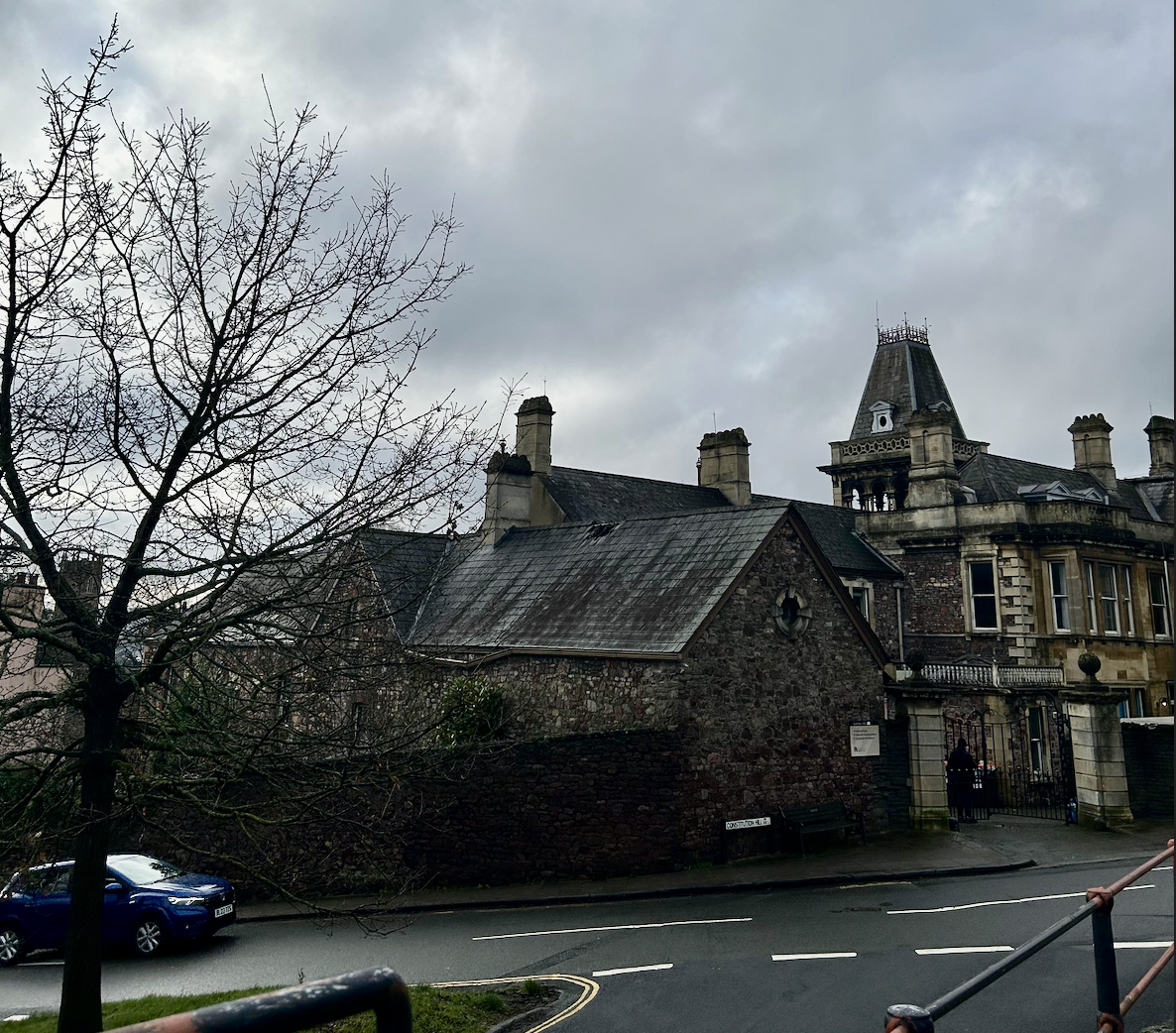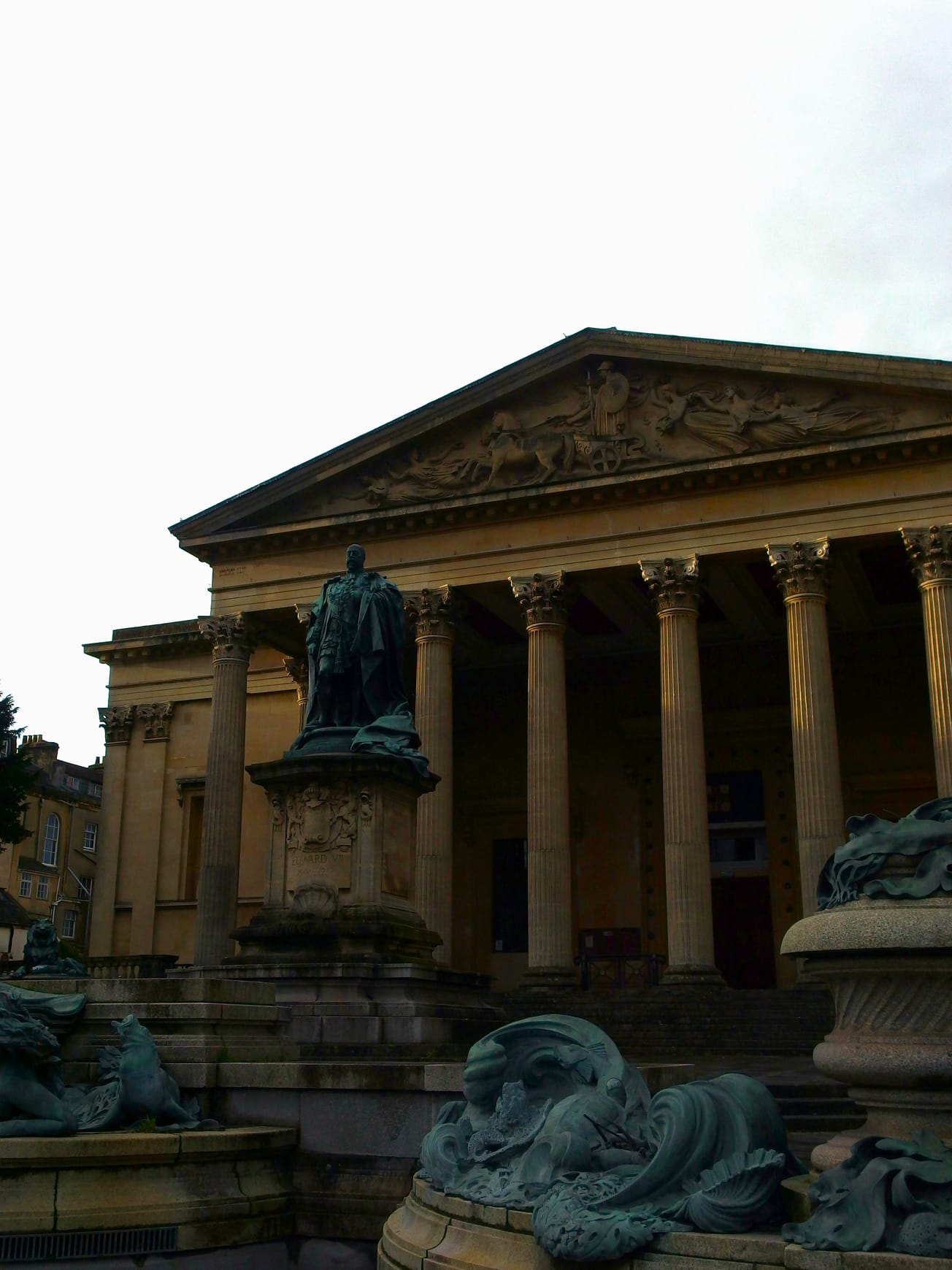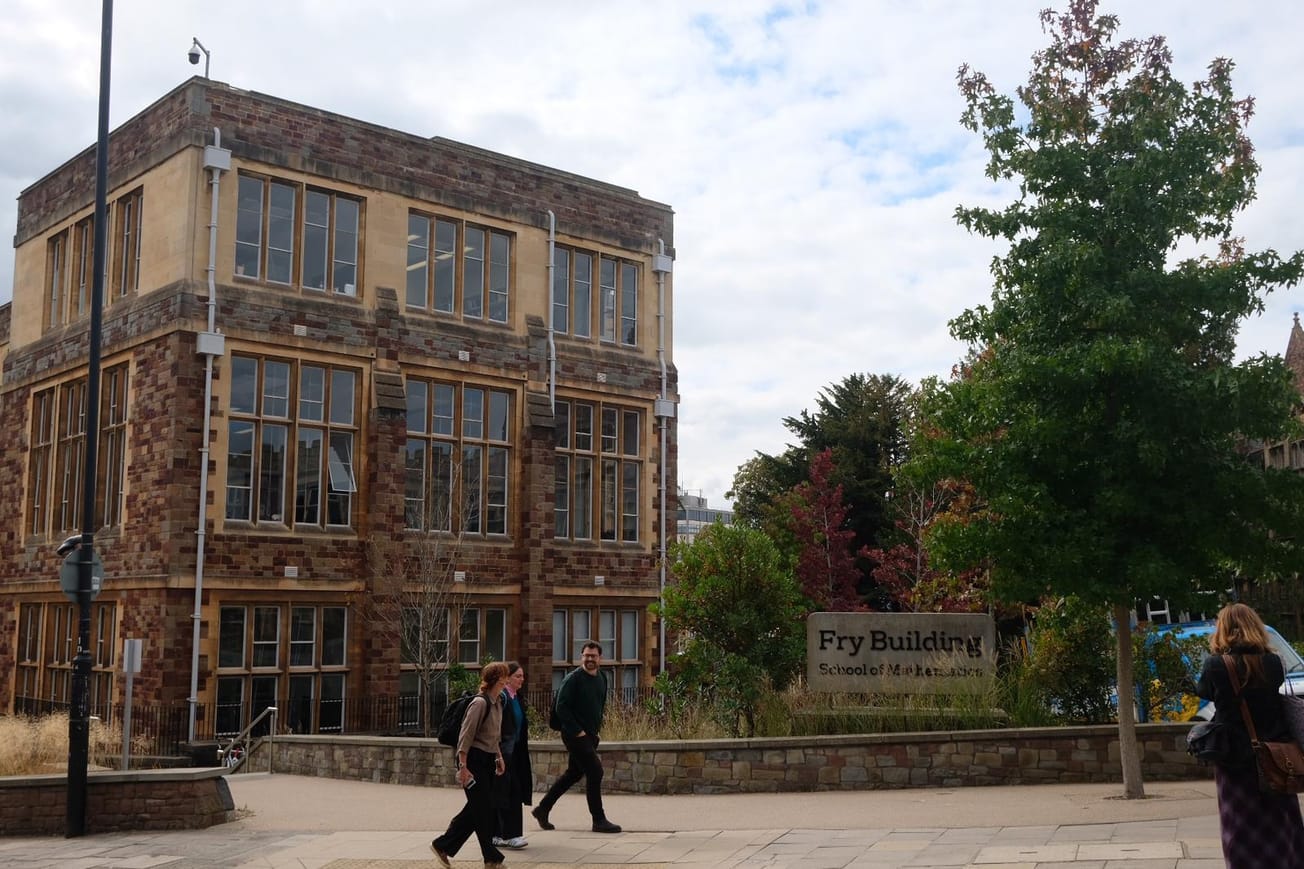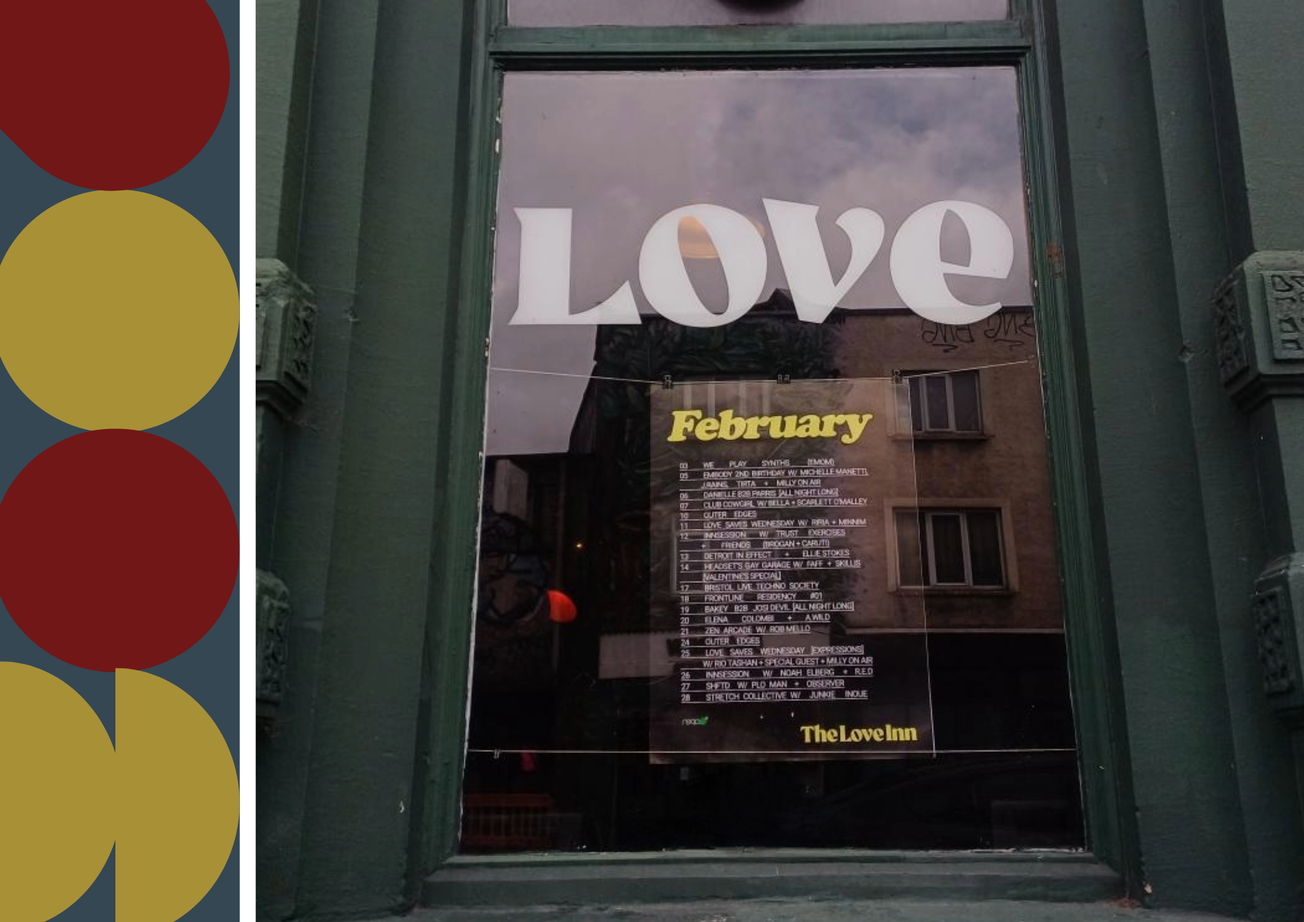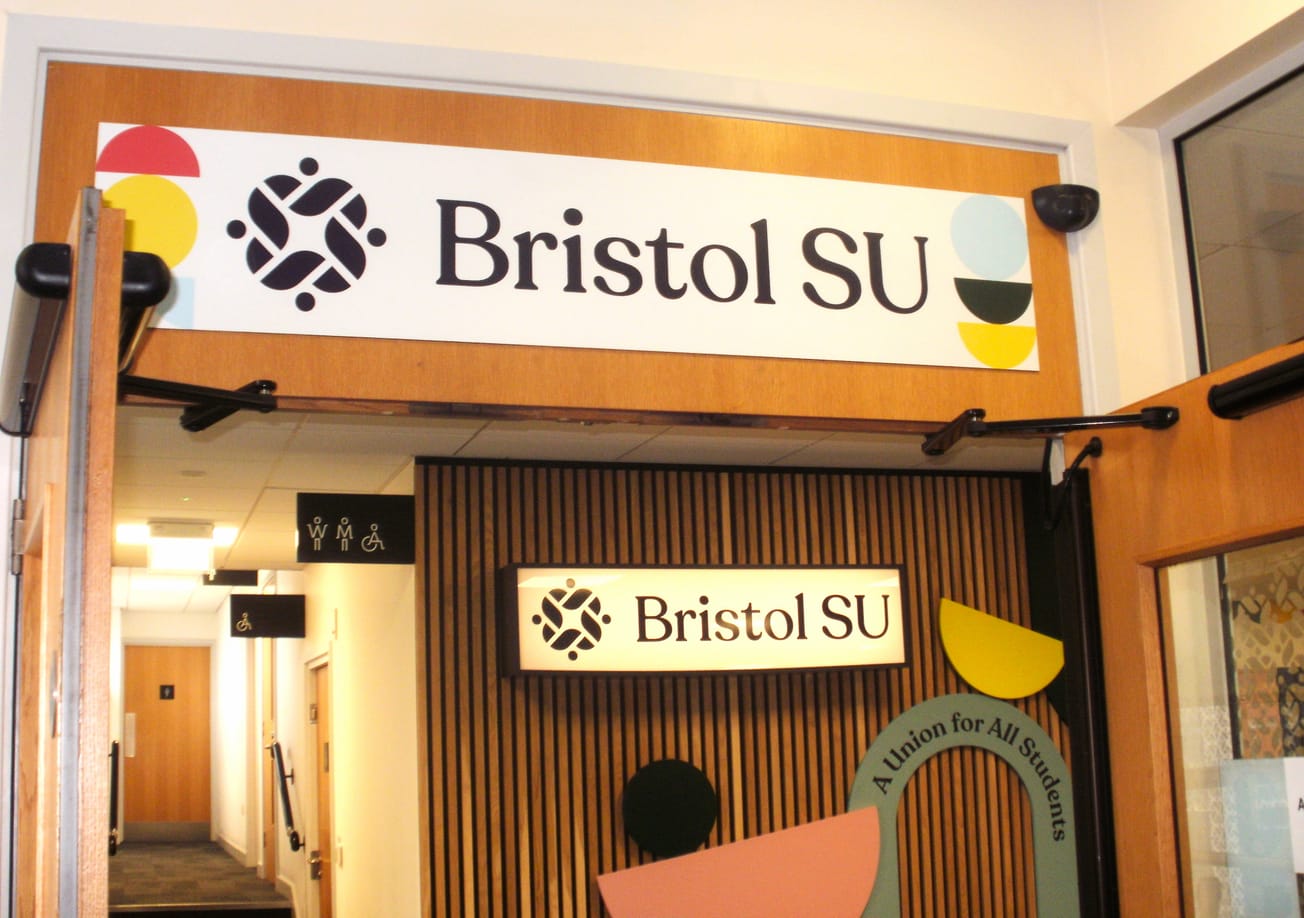By Milan Perera, News Reporter
Despite the freezing fog that enveloped the city on Saturday 21 January, over hundred health workers, unions and well wishers joined forces in front of the City Hall on College Green calling for better pay and working conditions.
March began near the Bristol Royal Infirmary (BRI) where the protesters originally assembled. The contingent carrying banners and placards marched through Park Row and Park Street before making its way to College Green.
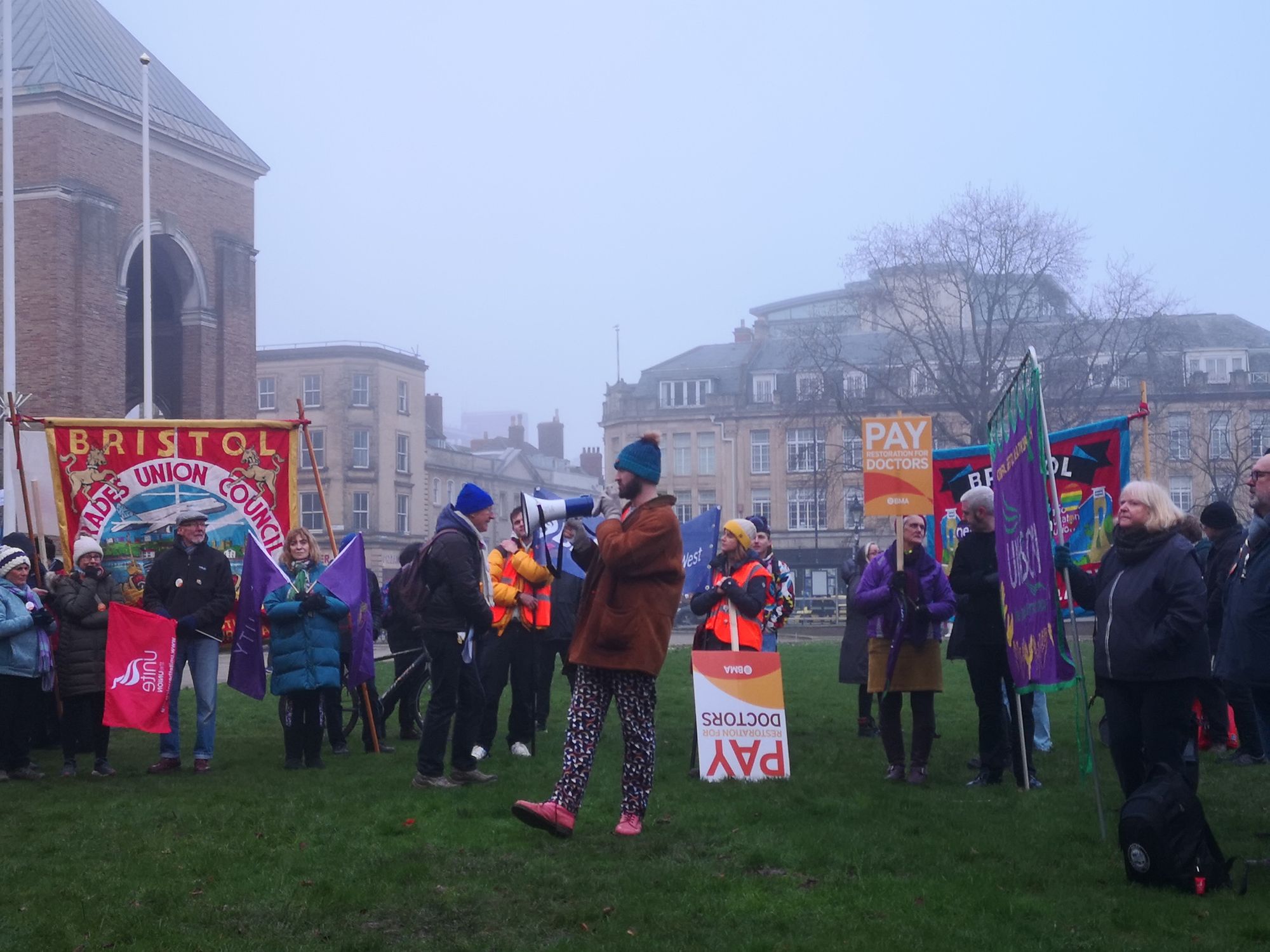
Among the protesters were junior doctors, nurses, other health professionals, union members, university students and members of the public. The protesters expressed their displeasure at government’s handling of the issue where according to the speakers of the rally more and more people who previously worked at the NHS were forced to leave their positions for jobs they enjoy less but offer better pay and work environments.
Addressing the rally was Dr Emma Runswick, deputy chair of council at the British Medical Association (BMA) who pointed out how some health workers have to rely on support from family members in order to stay afloat.
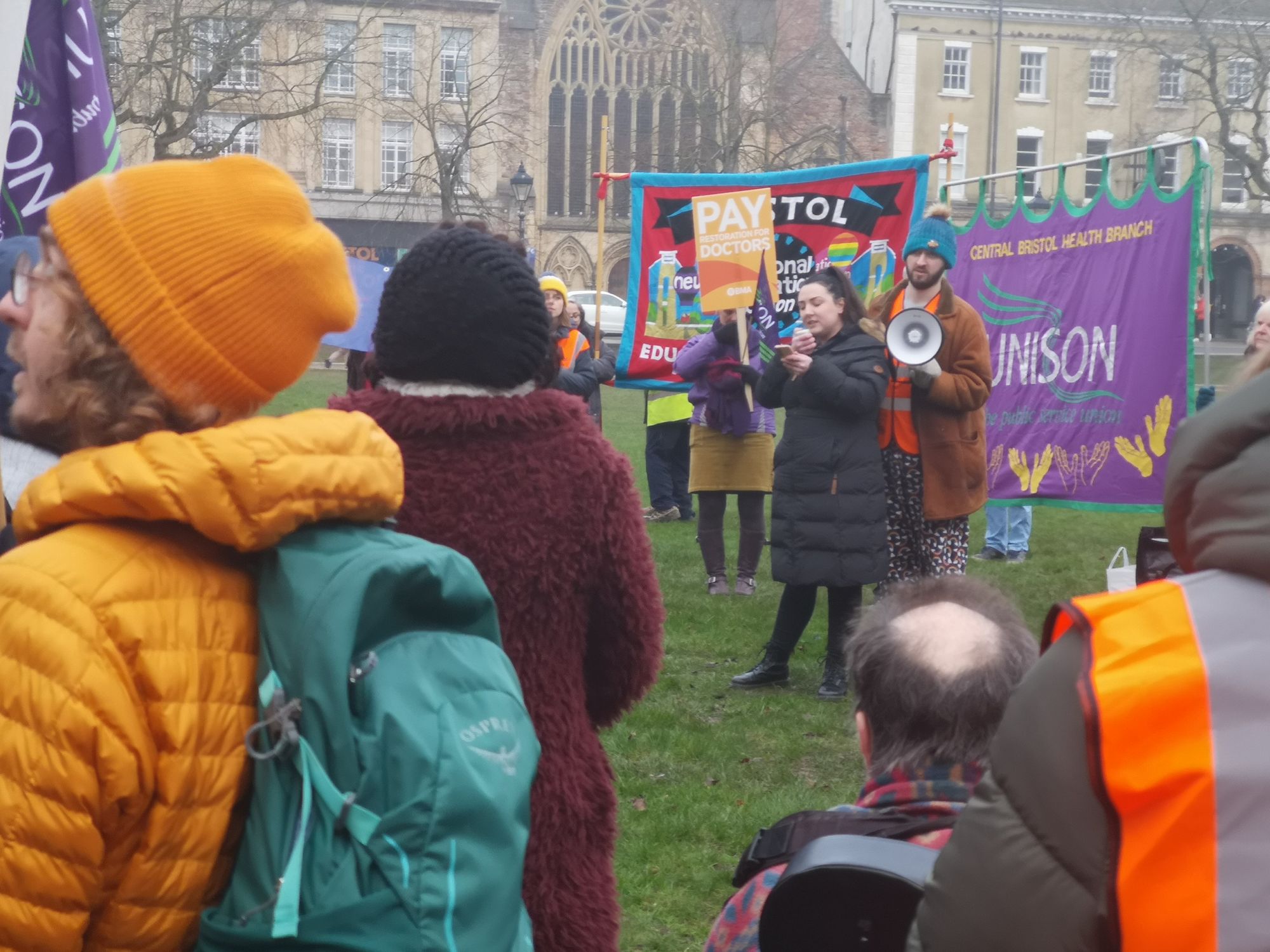
'Every single person in the world deserves not just the basics of food and shelter but also joy, art, sport, theatre and social time.
That’s even more vital for those of us in the jobs that we are doing: full of death and despair, long hours, rotational training and being moved away from your family.
'We are looking for pay restoration, not even a pay rise. We want to reverse pay cuts thrust upon us since 2008 when this government decided that we all have to pay for the mistakes of the banks.'
Also addressing the rally was Shannon, a NHS nurse who recounted how some former NHS workers reluctantly left the NHS when they felt helpless with the situation in order to work for something less satisfactory but somewhere they find better working conditions along with better pay.
The speakers also warned of what they called the government’s measures to privatise at least some parts of the NHS, referring to the proposal by the former health secretary that the patients should be charged for GP appointments and A&E visits as he felt the present model of the NHS as ‘unsustainable’.
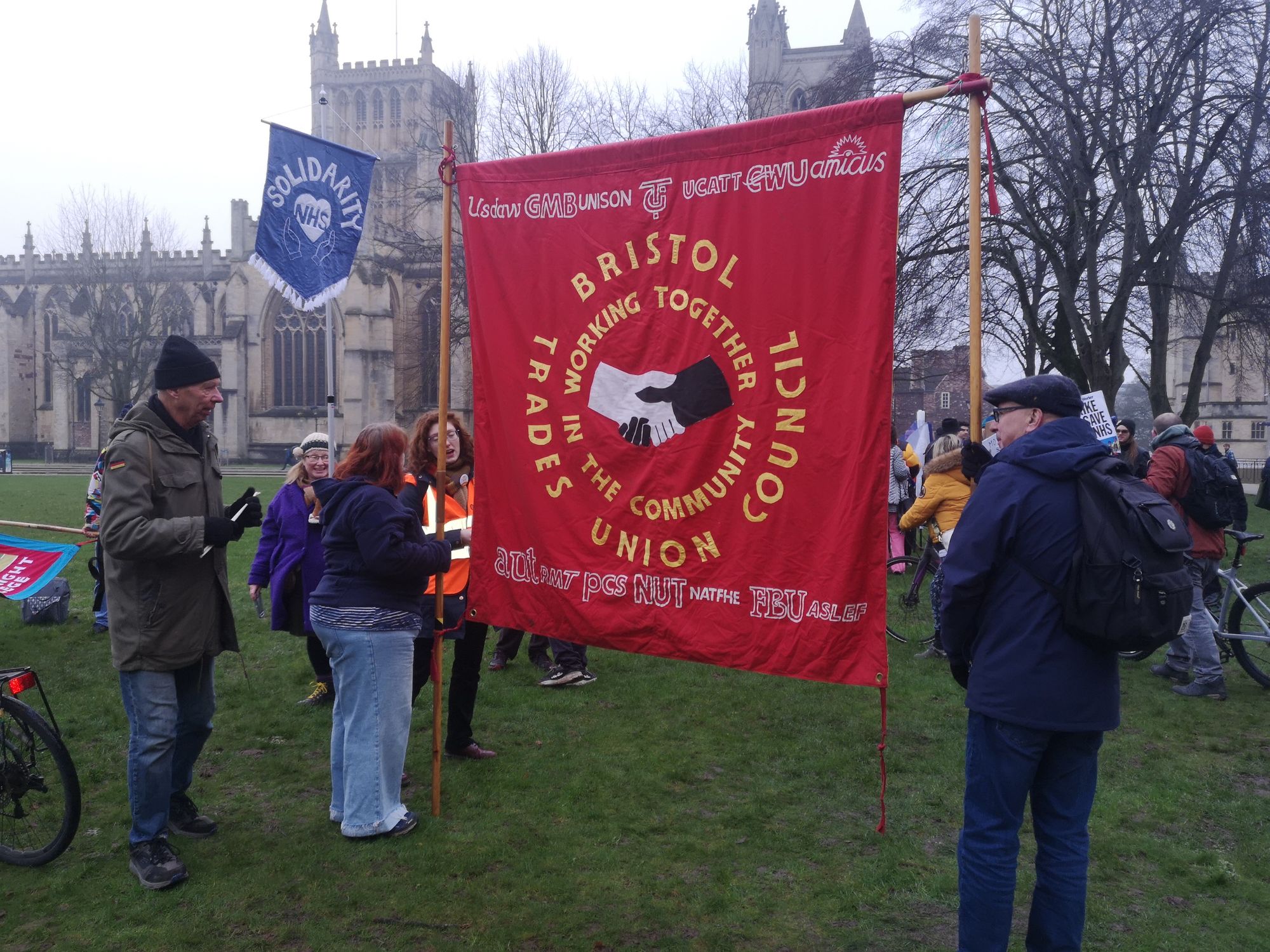
Charlie Gadd from Socialist Worker Student Society who was also present at the rally pointed out that:
'The government has spent the last 10 years using austerity measures to cut funding to essential services like the NHS. If you speak to striking health workers on the picket lines, one of the biggest issues is understaffing: ambulance workers spend entire shifts waiting outside hospitals because there are no available beds.
'The strikes in the NHS are about workers, who worked to keep us healthy through the pandemic, getting paid fairly – under the government’s plans many health workers are facing over 10% pay cuts this year – but it’s about more than that. It’s about years of cuts leading to a crisis in our NHS.’
As talks between the government and the unions failed to reach an agreement the NHS is facing a day of huge disruption when nurses and ambulance staff in England and Wales plan to stage a strike action on February 6.

